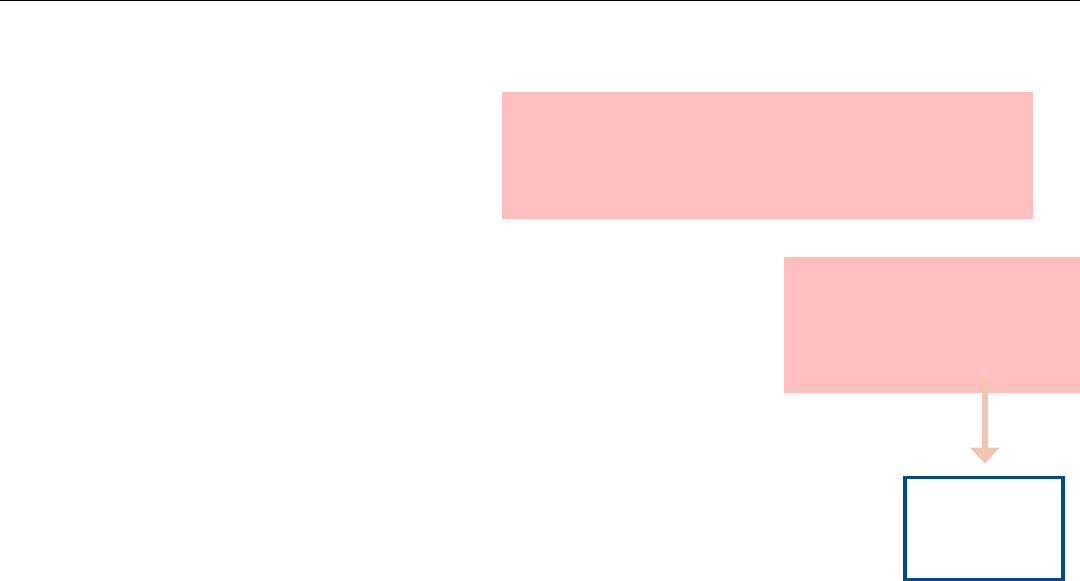
ASC Orientation
This is an interactive, click-driven guide. Where can we take you?
General Information for:
• Members »
• Directors »
Content Guide: Members
• Membership Roles »
• Mission »
• Structure »
• Portal »
• Interviews with Tech »
• Class of 2027 Profile »
• Rounds »
• Sample Reports »
• Scheduling »
• Venue »
• Interviews with Tech »
• What do we want to know »
• Regular Decision »
• Alumni Schools Committee »
• Calendar »
• Ethical Considerations »
• Eligibility »
• Ivy+ Best Practices »
• Interviews »
• Admissions »
• Highly Selective »
• Application »
• Application Types »
• Spring Yield Programming »
• Calendar »
• Financial Aid »
• Interviews »
• Calendar »
• Conduct »
• Portal »
• Reports »
• Sample Questions »
• Portal »
• Rounds, Application »
• Early Action »
• Statistics »
• Class of 2027 Profile »
• Financial Aid »
Clicking this icon will
bring you back to the
Table of Contents.
Clicking on any of the categories and
sub-categories will take you directly to the
section you’re looking for.
Table of
Contents
»
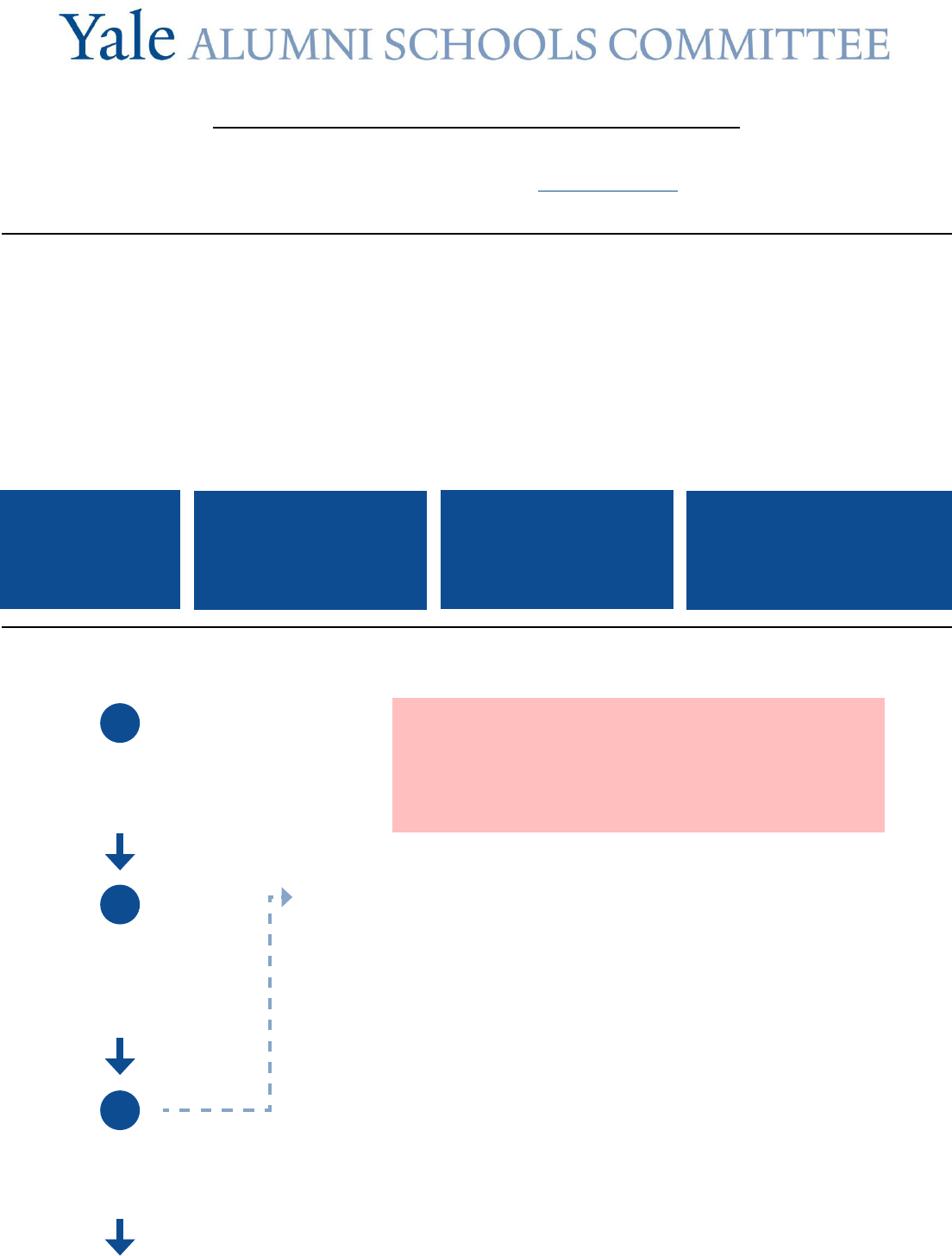
Overview for Members
This resource is intended to give ASC members a quick overview of the ASC Program to help get you started with
the 2023-2024 application cycle. We encourage you to visit the ASC Orientation for in-depth coverage of the
ASC Program and the interviewing cycle.
Overview o the ASC
The ASC is a network o alumni volunteers who share a passion or Yale and conduct interviews on behal o Undergraduate Admissions
with the goals o:
1. Providing crucial inormation about applicants to Yale so that the admissions committee can make better decisions as it shapes the
first-year class; and
2. Establishing a Yale presence that educates the local applicants and community about Yale’s unique opportunities, values, and
character.
The ASC consists o:
4,300
active
volunteers
committees that represent
60
countries
Why Your Work is Important
Ambassadorship: In many cases, the interview may be the only time the applicants have
direct contact with a Yale community member. As a result, the interview can be an influential
moment or the applicant, even beyond the application process. Your interaction with appli-
cants can illuminate the University’s strengths and ethos, and or admitted students, it may
contribute significantly to their choosing us over other attractive options.
Interviews: Perceptive written impressions help the Admissions Committee envision the
personal and intellectual qualities that may make some high-achieving students stand out
among others. Additionally, your reports can lend important context or the applicant. The
interview report remains one o the ew documents that provides a window into a sponta-
neous interaction with the applicant. As a result, they are some o the most requently viewed
documents in our Admissions Committee.
representatives rom all
14
institutions at Yale University
active volunteers
who span EIGHT
decades, rom the
Yale Classes o
1950
to
2023
The Interviewing Process
1
2
3
The process of completing an alumni interview involves several
phases and action items. The following diagram outlines these
phases, as well as key pieces of information that provide deeper
guidance at each step of the process. We hope you enjoy
conducting interviews for the ASC Program!
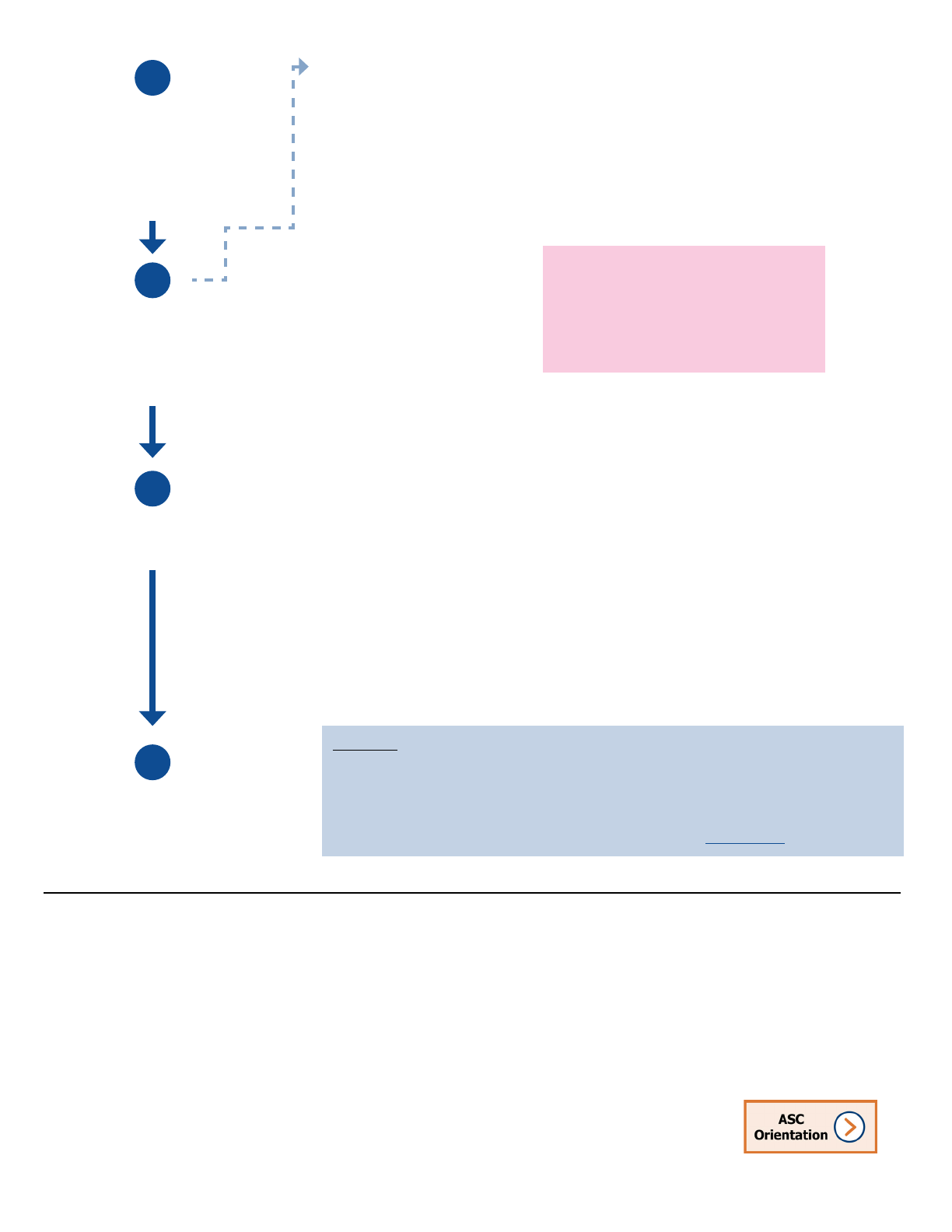
Important Dates and Additional Resources
Please keep the ollowing dates and additional resources in mind during your work as an interviewer:
• November 1st: Early Action application deadline. While some interviews may happen beore
this date, this is the official kick-off o the interviewing season.
• November 30th
: Report due date for assignments made pre-November 19th.
• December 9th: Report due date for assignments made post-November 20th.
• January 24th: Report due date for assignments made by January 10th.
• February 14th: Report due date for assignments made by January 24th.
• March 6th: Report due date for assignments made by February 14th.
The above dates serve as general deadlines for report submission. Area admissions officers
will be in touch with ASC directors once their EA and RD committee dates have been set to
determine when it would be most convenient to have interview reports on file.
Quick Tips
• We recommend completing your reports within 48-72 hours of the interview.
• If you have a problem completing an interview, let your ASC Director know right away. Please
still submit a report if a student declines the interview or is unresponsive to your messages.
• Applicants may ask questions to which you do not know the answer. That’s okay! Feel free to
direct them to the admissions oce for accurate information at [email protected].
Guidelines or Writing Interview Reports
The impressions you orm through the interview may provide key insights as we shape the
class. Below are a ew examples o themes you may learn rom the interviews:
Yale interviews are meant to be conversations rather than interrogations, where applicants
learn about Yale even as volunteers are learning about applicants. Expect applicants to ask
about your own Yale experiences; they’re just as curious as you are! Ultimately, we hope the
interview is a meaningul interaction or both the student and the volunteer.
Where/How To Conduct Interviews
Interviews tend to last between 30 minutes to 45 minutes. Anything shorter than that may
miss out on important inormation; anything longer may eel exhausting. The ASC
program will continue with a hybrid approach to interviewing, offering applicants
the choice between interviewing in person or virtually. A variety of platforms are available,
including:
•
Zoom
•
Skype
•
•
Google Hangouts
• Intellectual strengths and energy
• Academic interests
• Flexibility in thinking, openness
• Expressive abilities
• Non-academic interests or talents
• Personal qualities
• Distinctive or unusual talents
and/
or circumstances
4
5
6
7
FaceTime
Yale will NOT reimburse
interviewers for phone calls made
in service of the ASC program.
Please reach out to our office, if you
cannot reach the student through
any other method.
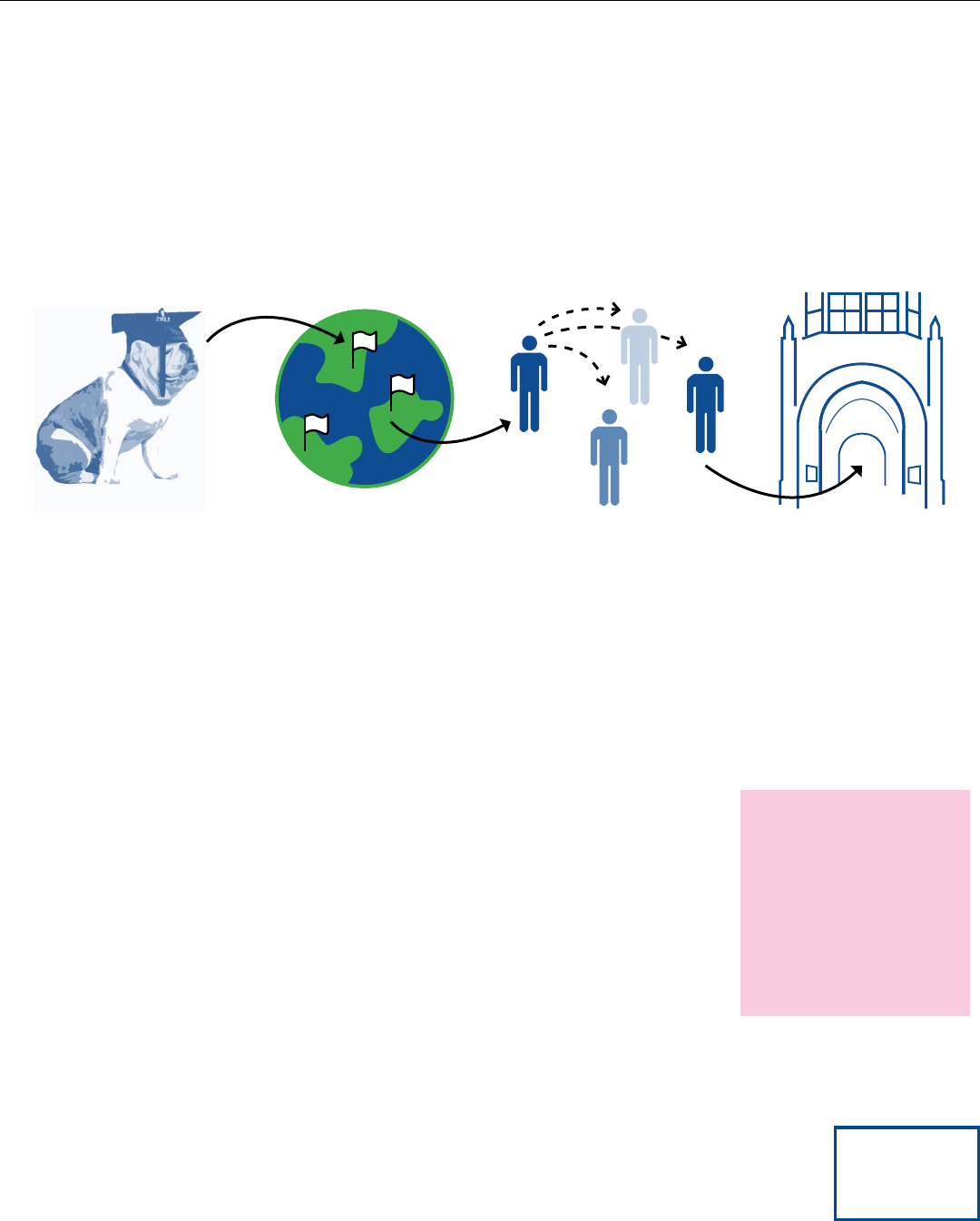
Table of
Contents
»
ASC Orientation
What is the Alumni Schools Committee (ASC)?
The ASC is a network o alumni volunteers who share a passion or Yale and conduct interviews on behal o
Undergraduate Admissions with the goals o:
• Providing crucial inormation about applicants to Yale so that the admissions committee can make
better decisions as it shapes the first-year class, and
• Establishing an ambassadorial presence that educates the local applicants and community about Yale’s
unique opportunities, values, and character.
Why your work is important
Ambassadorship: As a member o the ASC, you play a substantial ambassadorial role on Yale’s behal. Your
interaction with applicants can advance Yale’s reputation in general, and or admitted students, it may con-
tribute significantly to their choosing us over other attractive options. Through your interactions with pro-
spective students and their amilies, you illuminate the University’s strengths and ethos. In many cases, the
interview may be the only time the applicants have direct contact with a Yale
community member. As a result, the interview can be an influential moment
or the applicant, even beyond the college application process.
Interviews: Your interviews and written summaries are more important than
ever. With so many applicants—and many presenting similar academic and
extracurricular profiles—the Admissions Committee appreciates perceptive,
vivid written impressions to envision the personal and intellectual qualities
that may make some high-achieving students stand out among others. Ad-
ditionally, your reports can lend important context or the applicant. The
interview report remains one o the ew documents that provides a window
into a spontaneous interaction with the applicant. As a result, they are some
o the most requently viewed documents in our Admissions Committee
meetings, flashed up on a big screen so that all members o the committee can
read them.
Beyond the interview:
• Represent Yale at
regional admitted
student receptions
•
Represent Yale at virtual
"Send-Offs" for admitted
students
...
...
...
!
...
Y*
Y*
Y*
?
?
?
Welcome!
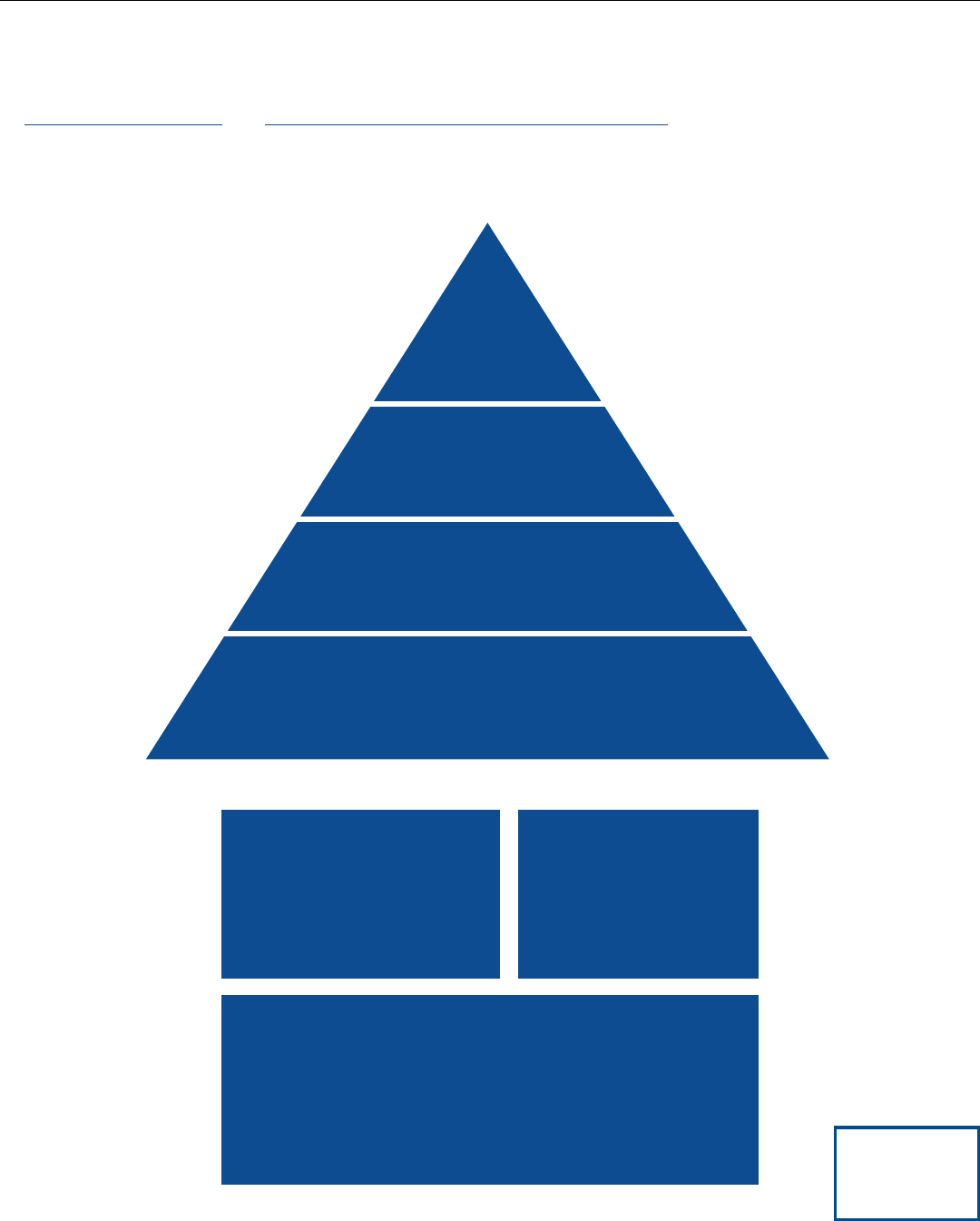
Table of
Contents
»
ASC Orientation
Who is eligible to join the ASC?
Any Yale College or Yale graduate or proessional school alumni can join the ASC. Please review our sections
on Ethical Considerations and eligibility as established by Ivy+ Best Practices or additional details.
Y
ale Undergraduate Admissions & ASC structure
24 Admission
Ocers
206 ASCs
4,300 ASC Members
9,000
interviews
completed annually
14
representatives rom all
committees that encompass
60
countries
&
50
U.S. states
institutions at
Yale University
Dean &
3 Senior
Associate
Directors

Table of
Contents
»
ASC Orientation
Rewards and ambassadorship
Why is the ASC rewarding?
ASC members universally say that the biggest rewards o volunteering come rom the one-on-one conver-
sations with Yale hopeuls. Many o them are impressive because o their accomplishments or their engag-
ing personalities. But even when you meet students with less dazzling attributes, the encounters can be
endearingly memorable – in act, your reports may help illuminate qualities that otherwise would not have
emerged in their applications.
A ew words about ambassadorship
For many applicants, alumni interviews are the first contact with the colleges they are exploring. You may
be the ace o Yale University or many applicants you meet, so your role is significant, perhaps momen-
tous or a student who discovers the best o Yale through you. We oen hear rom students who say their
interviewer was a key influence in their decision to enroll. We like to think that even those who decide to
enroll elsewhere, or who are not admitted, nevertheless have very positive eelings about Yale because o
their interviewer.
The heart o the ASC Program lies in our ability to be ambassadors or Yale. While we must be realistic
about the admission rate, we can contribute to students’ positive eelings about Yale. In act, your ambas-
sadorship on the University’s behal may ultimately contribute more significantly to Yale than your assess-
ment o any single applicant. A student might find his meeting with you to be so comortable, so engaging,
and so sincere that he sees Yale’s tangible and intangible strengths through you. And we never underesti-
mate the positive ripple eect that can result rom a good interview experience—even i the student isn’t
admitted. When applicants tell their amilies, counselors, and classmates about their engaging Yale inter-
viewer, those impressions influence the thinking o other candidates and their supporters.
Interview workflow
How do students apply?
In order to be eligible or an interview, reshmen applicants must complete the Common Application,
the Coalition Application, or the QuestBridge National College Match Application, all available online.
Application Rounds:
Regular Decision (RD)
Deadline: January 2nd
Decision Release: late-March
Single-Choice Early Action (EA)
De
adline: November 1st
Decision Release: mid-December
The plan is non-binding, meaning that
candidates who are admitted early need not
respond to the oer of admission until
May 1, and may apply to other schools
during Regular Decision.
The decision release date is set by the Ivy
League admissions deans as the Ivies release
their decisions simultaneously. Students
will have until May 1 to notify Yale of their
matriculation.
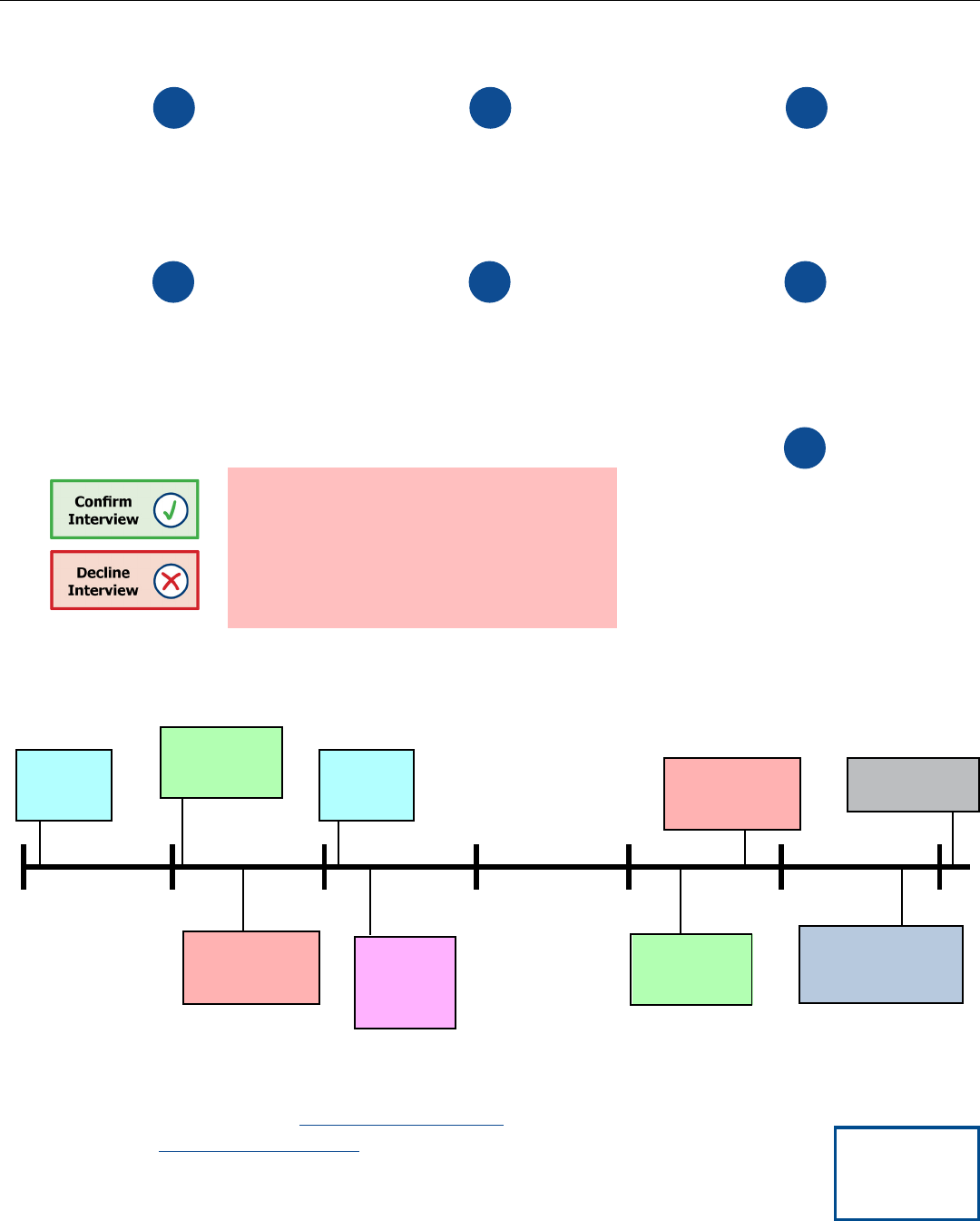
Table of
Contents
»
How are interviews assigned to me?
ASC calendar
ASC Orientation
For a more in-depth look at the ASC
calendar, please visit our section on the
Detailed ASC Calendar.
. . . . . .
Nov. 1 - EA
application
deadline
Dec. 9 - EA
interview report
final due date
mid Dec. - EA
admissions
decisions released
Jan. 2 - RD
application
deadline
Jan. -
begin
RD interview
assignments
Mar. 6 - RD
interview report
final due date
late Mar. - RD
admissions
decisions released
mid-to-late April -
yield programming
for admitted students
May 1 - admitted
student reply date
1
2
3
4
5
6
7
Aer you are assigned an interview, please be
sure to confirm the interview as soon as possible
via the notification email. If you are no longer
able to conduct the interview, please be sure do
decline the interview so that your Director can
assign the student to a new volunteer.

Table of
Contents
»
The interview
ASC Orientation
Contacting the applicant:
Friendly, inviting first contacts by email or phone can put applicants at ease. Let them know rom the out-
set that you’re looking orward to a good conversation rather than a ormal interrogation.
Once you have accepted your assignments, you will be able to access the phone numbers and email addresses
or all o your interviewees through the ASC portal. We recommend that you cover all bases by using
email, and then i needed, the phone. After two or three attempts to reach an applicant, you should not
eel obliged to pursue the interview any urther. In such instances, please submit the interview report and
indicate that the student could not be reached after multiple attempts.
Scheduling the interview:
Please take into account time o day. Schedule interviews during non-school hours. It is inappropriate to ask
students to skip class for an alumni interview.
Give several choices o date and time. Indicate that interview will take approximately 30 minutes but no
more than 45 minutes.
Occasionally applicants will decline interview invitations, typically because they have been admitted ear-
ly to their first-choice colleges or or other reasons. If a student declines an interview invitation, please submit
the interview report and indicate the student’s reasons for declining the interview.
The venue:
The ASC program will continue with a hybrid approach to interviewing, offering applicants the choice
between interviewing in person or virtually. If interviewing virtually, please choose a space with a neutral
background and as little ambient noise as possible, such as a home office. If interviewing in person,
please offer a neutral location. It is inappropriate to invite applicants to your home.
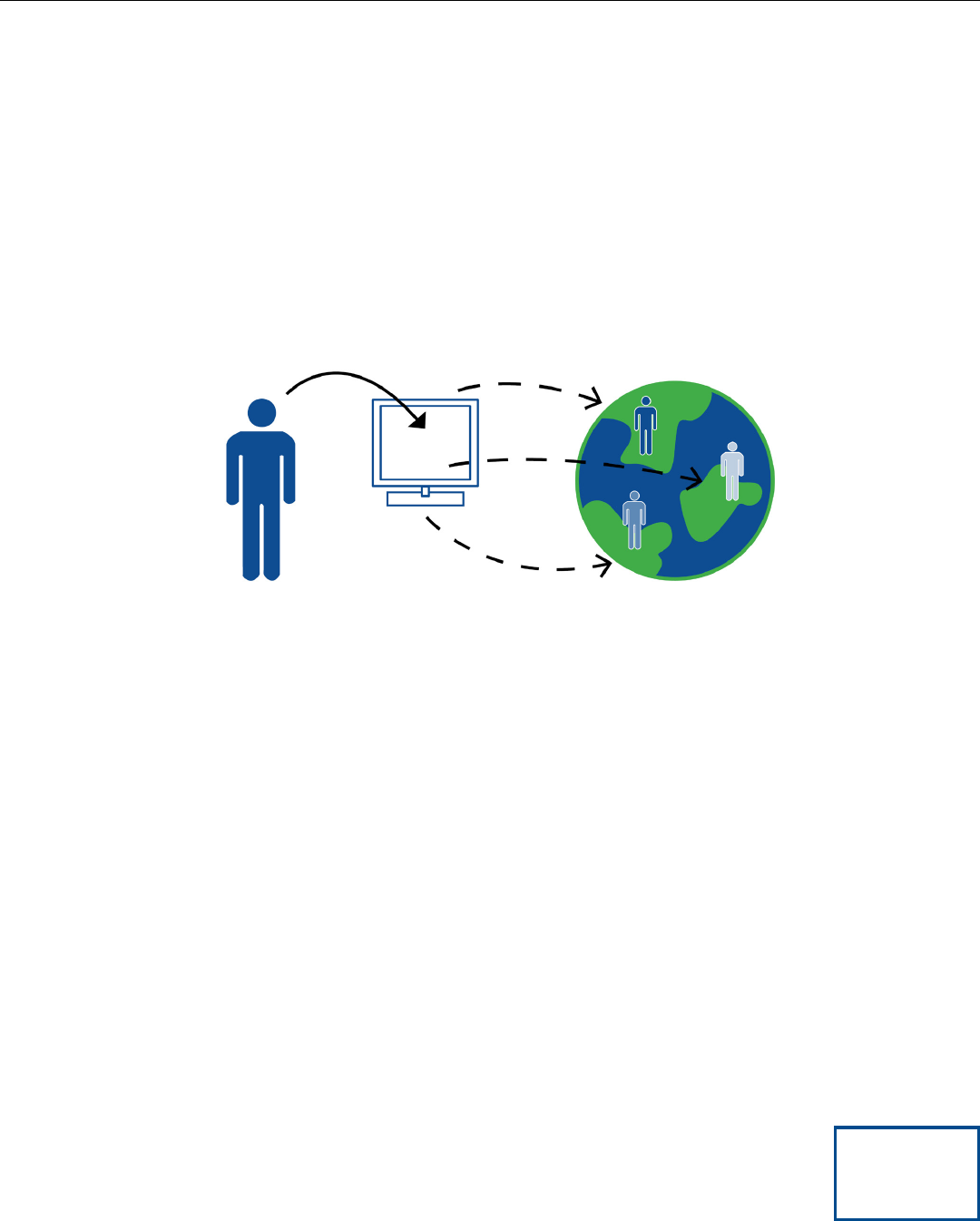
Table of
Contents
»
ASC Orientation
Interviewing with technology:
The biggest benefit of online communication is that we can now reach students who live in remote
locations or who are otherwise difficult to see in person. In the past, many volunteers have ound that
interviews via teleconerencing are perectly reasonable substitutes or in-person interviews.
These interviews are arranged and conducted in the usual way, but you and the applicant will need to
have the appropriate platorms available on your computers/phones. We recommend Skype, Zoom,
Google Hangouts, or Facetime as potential options.
O course, there may be situations where even online interviews aren’t possible, but where a conversation
with the applicant is highly desirable. In such cases, we’ll have to rely on the telephone. That means yet an-
other dimension o the conversation is removed, but it’s preerable to having no conversation at all. As with
any interview, you may need to lead the way toward putting the applicant at ease.
Length:
There is no prescribed length or interviews, but we recommend 30 to 45 minutes. This length o time
tends to strike a balance between “rushed” and “overwhelming.”
Notes:
You may be tempted to write notes during the conversation. We suggest waiting to
make notes until after you’ve wished the applicants well and concluded the interview,
as to prevent them rom eeling sel-conscious.
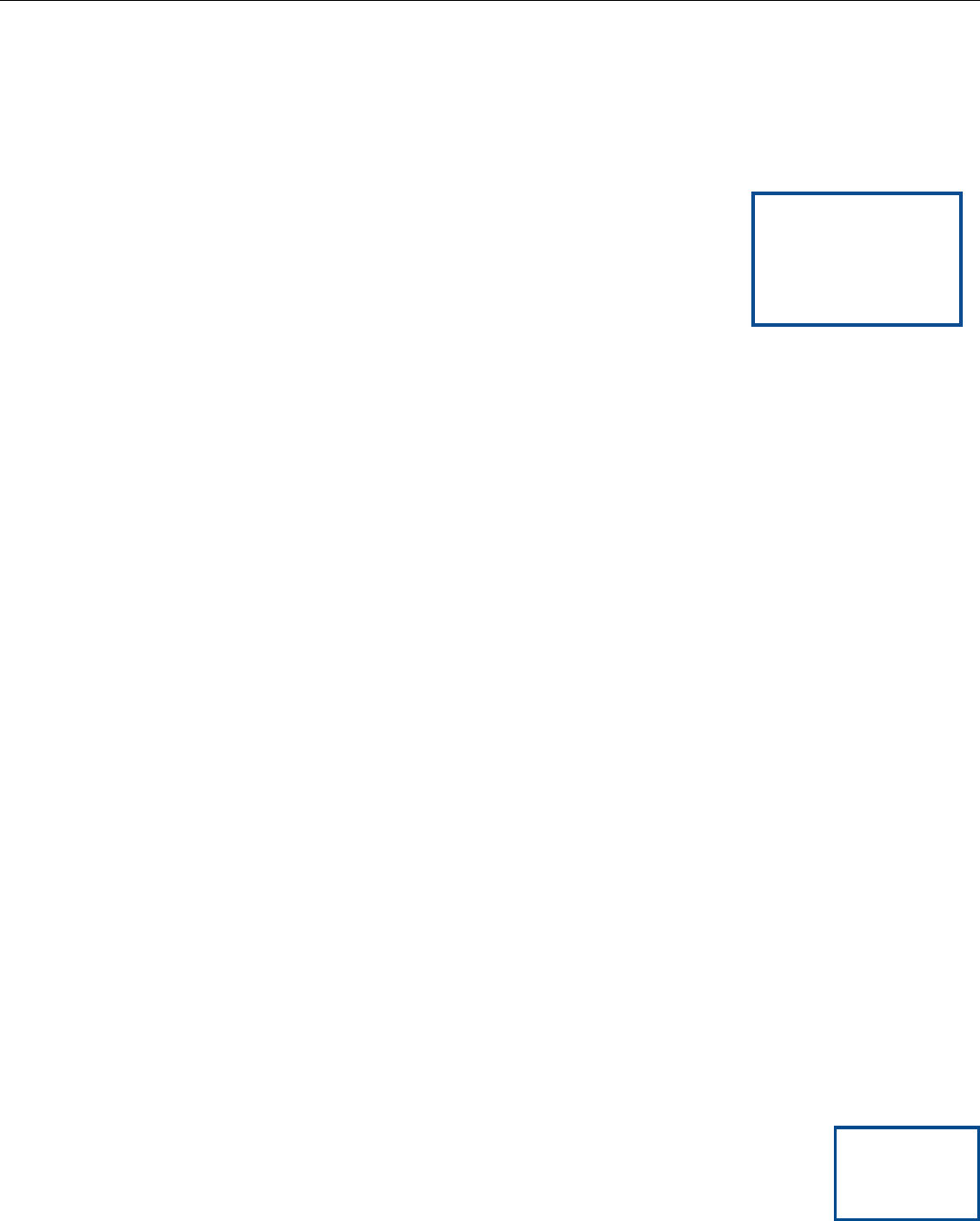
Table of
Contents
»
ASC Orientation
What do we want to know?
We will have the applicants’ academic records, teacher recommendations, list o extracurricular activities,
and other evidence o their abilities. But you may be able to detect some o the characteristics that will help
us assess their promise or success at Yale.
By ocusing your questions on students’ interests, inspirations, and sourc-
es o pride or satisaction, you can help dispel the notion that raw academic
data points alone are used to categorize applicants. Even in the admissions
oce, we never look at grades and scores without placing them in the context
shaped by a number o other actors which are known to us. Students may
volunteer their credentials without your asking, which is perectly fine; we
just ask you not to attempt to orecast their chances or admission based on
that inormation.
It is perectly okay to accept such items, but it’s generally best to set them aside and go right into the in-
terview. Toward the close o the conversation, you may wish to mention that interviewers cannot submit
documents on behal o applicants, and that you assume the student has provided the admissions oce
with the same inormation.
Please do not consider what ollows to be a script or a checklist. We just want to summarize what we hope
to learn rom you about the applicants, including these main categories:
Intellectual strengths, energy: What is your impression o the applicant’s general thinking
skills? Does he seem comortable with complex ideas? Were his answers to your questions
thoughtul, ull? Did he display insight, originality, ability to support ideas with examples?
Can you envision him taking an active part in classroom discussions or in lively conversa-
tions over meals in the dining hall?
Academic interests: Was the applicant able to identiy some areas o particular academic
interest? Does she enjoy learning in other academic areas? Is she likely to take advantage o
a liberal arts education? Has she begun to orm ideas about specific majors or Programs?
Is she aware o Yale-specific academic oerings? Does she have career aspirations? How
well-reasoned do those aspirations seem to be?
While we do not admit students to fill certain academic departments or vocational roles, it
does help us to have a sense o how much thought students have given to how they might
use their Yale academic experience, and whether they have especially well-defined areas o
scholarly ocus.
Flexibility in thinking, openness: Did the applicant show signs that he can entertain dierent
points o view and can oer opinions with grace? Did he discuss any experiences
in which conflict or disagreement arose? I so, how did he handle himsel? Did he
reveal any strongly held belies or attitudes that could be considered strengths in
the context o a university community? Or liabilities?
Sample
Questions

Table of
Contents
»
ASC Orientation
Students naturally carry their own set o convictions and perspectives. We especially ap-
preciate those whose minds are agile enough to have convictions and perspectives tested
through healthy exchanges and experiences.
Expressive abilities: How skillully and confidently did the applicant express hersel? Is she
an easy conversationalist? Did she oer ull, articulate responses to reflective questions? Did
she ask thoughtul questions? What strengths did she display in using the English lan-
guage?
Expressive abilities tend to be closely linked with intellectual strengths, but sometimes
students are better thinkers than talkers, and vice versa. Our best candidates will usually be
strong in both realms!
Nonacademic interests or talents: What are the applicant’s avorite outside interests? How
did she become involved? What is her level o commitment in terms o time and energy? Is
she likely to pursue similar interests while in college? Does she seem to be striking a healthy
balance between extracurricular activity and school work?
Keep in mind that we will already have an extensive list o an applicant’s activities, as well as
commentary rom her school about her extracurricular accomplishments. We are interested
in your impressions o how nonacademic pursuits fit into her lie and what role they may
play in her experience at Yale.
Personal qualities: What about the applicant’s demeanor stood out or you? What kind o
classmate and/or roommate is she likely to be? What character traits are you able to detect?
Do her personal traits set her apart in a positive way? In a less than positive way?
Since many o our applicants will not have extensive interviewing experience, we ask you to
try to see the person beyond the anxious or eager interviewee. What is this applicant like, in
all probability, in her daily lie?
Distinctive or unusual talents and/or circumstances: Did the applicant mention rare pursuits
or accomplishments? Did you learn anything about his background or lie experiences that
may be significant?
Applicants or their recommenders tend to tell us about achievements or talents they con-
sider to be noteworthy, so don’t bother listing common awards or activities. But please
note anything that seems to be truly special or unusual. The same goes or background
circumstances. In most cases, though, we’re interested less in what was achieved or what the
circumstances are than what impact the talent or background has on the student’s lie.

Table of
Contents
»
ASC Orientation
Some things to consider:
Guardians: It is perectly generous and appropriate to chat with guardians and to answer
questions they may have, after the interview, i you have the time, and i the circumstances
are comortable. But you are not obligated to devote extra time and energy to a ull-scale
session with amily members, especially i you detect efforts to cajole or pressure you.
Difficult Topics or Circumstances: As a rule o thumb, it is better to let students themselves,
i they wish, introduce topics that are deeply personal or sensitive. We've ound that ap-
plicants have become increasingly open and orthright in their application essays, and you
may meet a candidate who will mention personal struggles, amily issues, and the like. You
would not want to probe such areas, but you should be ready to let students talk about
things they believe are relevant in conveying “who they are.” We also advise against asking
leading questions such as those concerning the students’ or guardians’ political leanings,
religious belies, or financial situations. And should interviewees raise delicate subjects
themselves, it’s wise to employ diplomatic instincts in determining how to keep the
conversation within the bounds o a college interview.
Our applicant pool naturally includes students with disabilities and a variety o special cir-
cumstances that may require accommodations or the interview setting or the way the inter-
view is conducted. We rarely hear o situations that pose difficulties, though, and common
sense adjustments, i needed, usually make the interview flow as smoothly as any others
would
It’s hardly common, but students themselves may display unusual immaturity in one way or
another, which tends to lead to an understandably somewhat abbreviated conversation. In
extreme cases where, say, an applicant is disrespectul or combative, you have clear right to
discontinue the interview and include in your report the circumstances that led you to do
so. We try to be orgiving o candidates who are simply unpracticed in the art o interview-
ing, and may dress more casually (or ormally) than expected, or instance, or may be less
than precisely punctual or unsophisticated in other ways. But you may o course record
your honest impressions in the interview write-up.
The interview report:
What to tell us:
You are ree to write your report in any style that is comortable to you. We see everything rom elegant
prose to crisp bullet points. We set no specific parameters or length, but extremely terse reports lack the
descriptive texture that lends credibility to any conclusions drawn. Extremely long reports oen include
unnecessary details—even to the point o obscuring the gist o your impressions.
In general, we think it’s wise or interviewers to complete write-ups as soon as possible
aer the conversation concludes while memories are still resh.

Table of
Contents
»
ASC Orientation
While the Admissions Committee already has the applicant’s academic credentials and extracurricular
resume, you can make observations about her expressive abilities or depth o thinking that aren’t easily
captured in SAT scores or grade averages. You may be able to gauge more accurately the authenticity o her
enthusiasm or an academic subject or commitment to an activity through your in-person conversation.
The assessments you make about your interviewees are strengthened with any supporting details you can
include. I the applicant seems to you like one who’d be a lively contributor to seminar discussions, tell us
how he gave you that impression. I you think she would be a great roommate and member o her residen-
tial college, tell us about her demeanor or something she said that led you to that conclusion. You may find
it helpul to include quotations—or at least paraphrased utterances—in your report.
Ethical considerations
We hope you enjoy the privilege o and pride in representing Yale. That comes with some responsibilities which
should be easy and natural to ulfill, mostly because they require only common sense and general thoughtul-
ness. Here are some o the key ideas; we trust you to adapt or extrapolate where appropriate.
Ivy+ Best Practices:
The Ivy+ Colleges and Universities have agreed to abide by these general practices and principles. Individ-
ual institutions may tailor these practices to suit their individual programs.
1. Institutional Priorities
a. Subscribing institutions agree to have a statement o purpose defining the roles o alumni volunteers and their
interactions with prospective students.
b. Schools will provide training to alumni volunteers.
c. Legitimate complaints will be investigated without prejudice to the applicant at any point in the admissions
process in a timely manner. Institutions will provide a point o contact or counselors, parents, and students to
contact the alumni admissions program with any such complaints.
2. The Role o the Alumni Volunteer
a. Alumni volunteers will abide by the non- discrimination policies established by the individual institution.
b. Alumni volunteers will abide by the confidentiality policies o the program and the institution.
c. Alumni volunteers will abide by the best practices established by NACAC and the NCAA.

Table of
Contents
»
ASC Orientation
3. Eligibility
a. Conflicts o interest, real or perceived, will inorm the volunteer’s eligibility, as determined by each individual
institution. Such conflicts may include:
i. Admissions ocer or a college counselor
ii. Secondary or post- secondary institution employee
iii. Immediate amily member o current applicants to the individual institution
iv. Immediate amily member o current college applicants
v. Independent college counselor
vi. For- profit college preparation consultant
b. An alumni volunteer may not represent more than one undergraduate institution in the same admissions cycle.
4. Expectations or Alumni and Applicant Interactions
a. Alumni volunteers will strive to create a mutually respectul environment and interaction.
b. Alumni volunteers will treat all inormation provided by the institution or the applicant as confidential.
c. Alumni volunteers will not request that applicants provide specific materials (e.g., transcript, application, essays,
resume, questionnaire) to their interviewer.
d. Alumni volunteers should not create any impressions or expectations, positive or negative, about the student’s
probability o admission.
e. Alumni volunteers will ensure that interactions occur in a sae, accessible and neutral location; at a time that is
agreed upon by both parties; and that respects the volunteer’s and the student’s commitments to school, work,
activities, and amily obligations.
. Alumni volunteers will not interview applicants with whom there is an existing personal, amilial or proessional
connection.*
g. Alumni volunteers will not initiate conversation that may make a candidate uncomortable or that is overly per-
sonal, whether with regard to the candidate or the volunteer.
h. Alumni volunteers will use appropriate language.
i. Alumni volunteers will not use disparaging comparisons o secondary or post- secondary institutions.
j. Alumni volunteers will not ask the student where he or she is applying.
Interview conduct:
Please conduct interviews in English.
We strongly preer that interviews be one-on-one conversations. For even the most
poised o applicants the college interview can be stressul, and acing more than one
interviewer, no matter how warm and approachable they are, may be intimidating.
ASC eligibility:
ASC members are not permitted to recruit or interview or another undergraduate college.
*Alumni volunteers will not interview applicants with whom they have a connection that others could reasonable
perceive as a conflict of interest. The term "connection" should be understood broadly and includes personal, familial,
financial, and professional connections.
I
an ASC member’s child is in Yale’s applicant pool during the current admissions cycle, he or she must
step away rom the ASC during that cycle and not conduct any interviews. We also ask that members take a year o
rom the ASC i a grandchild, sibling, or other close relative is applying to Yale.
Independent college counselors or individuals otherwise engaged in helping students prepare college ap-plications
(college admission ocer, or-prot college preparation consultant, etc.) are not permitted to be ASC members.
School-based counselors and teachers may interview, but they should not interview students who attend
the schools in which they work.
*Alumni volunteers are not permitted to interview if they have been convicted of a criminal or felony charge.

Table of
Contents
»
ASC Orientation
Only interview students with whom you have no prior association or connection—rerain rom interview-
ing riends, riends o riends, children o riends, etc. We trust you to be unbiased, but in the high-anxiety
climate o college admissions, we think it’s better or everyone i we avoid even appearances o a conflict o
interest. I your ASC Director happens to assign you a student who fits in the “I should recuse mysel ”
category, simply decline the assignment.
Avoid anything in the conversation that implies you or the University preer students o certain political
persuasions, religious belies, or other personal points o view or backgrounds. Do not ask where else an
applicant is applying, and do not denigrate other colleges or high schools, and, o course, do not discuss
other candidates during the interview.
Do not create any impressions or expectations, positive or negative, about the student’s probability o
admission. Do not ask to see test scores, grades, or a resume, and i the student happens to hand you this
inormation, accept it graciously but then put it aside.
Anything you learn about a student should be treated with utmost respect or privacy. You may find it
helpul to discuss an interviewing experience with your ASC Director or with the appropriate admissions
sta member, especially i there is a delic
ate concern or i general eedback would be useul to you. In the
extremely rare case where a student might reveal directly or indirectly a potentially dangerous physical or
psychological situation, it may be prudent to consult with a parent or school ocial, but only when saety
is at stake and aer seeking advice rom the ASC Director and admissions sta.
Detailed ASC calendar:
September-October:
• Admissions office recruitment travel, including local inormation sessions and school
visits
• ASC gatherings
Early autumn sees the heaviest recruitment travel in the US and throughout the world. Public information
sessions may be offered in your area, and you are cordially invited to attend. It is often very helpul to
have ASC members on hand to meet and answer questions rom students and parents.
Your Director may also invite you to attend an ASC gathering, giving you the chance to meet ellow mem-
bers, give and receive tips on interviewing Yale applicants, and otherwise kick o the academic year and
admissions season with ellow volunteers and ambassadors or Yale.

Table of
Contents
»
ASC Orientation
November:
• November 1 - EA applications due
• EA Interviewing begins
November is a busy month or interviews, given that the EA application deadline is November 1st, and
Admissions Committee meetings begin later in the month. You will receive interview requests rom your
ASC Director via email notification. We urge you to confirm or decline an assignment immediately and
then contact students promptly. Try to schedule the interviews during the first hal o the month i possi-
ble. (Keep in mind that the U.S. Thanksgiving holiday may aect scheduling options later in the month.)
By preparing and submitting your interview reports by late November, you will help admissions ocers
enormously as we prepare or committee meetings. In any case, we ask that you submit your reports no
later than December 1st.
December:
• December 1 - EA interview reports due
• Admissions decisions released
• Congratulatory contacts with admitted students
Aer several weeks o intensive committee meetings, EA admissions decisions are posted online, usually by
mid-December. You will be able to view the decisions or the applicants you interviewed in the ASC portal
ollowing the notification date. The decisions must not be made public or discussed outside the ranks of the ASC
membership. We are obligated to maintain the strictest standards of privacy and confidentiality with respect to our
applicants, whether admitted, denied, or deferred.
It is customary or interviewers to contact admitted students to express words o congratulations and will-
ingness to stay in touch i questions about Yale arise. (Remember, students admitted early do not have to
make a commitment to attend until May 1st, and continued interest and support on the part o volunteers
goes a long way to assuring that the response will be “yes.”) We do not encourage initiating contact with
applicants who have been denied admission or whose applications have been deerred or consideration
anew in the RD process.
January:
• January 2 - RD applications due
• RD interviewing begins
The RD interviewing season is less compact than the EA period, but the volume o applications is higher.
With admissions committee meetings starting in February, the need or prompt action remains—as does
the appreciation or your efforts! Please submit your reports no later than March 1st.
February:
• Interviews continue

Table of
Contents
»
ASC Orientation
March:
•
Admissions decisions released
By agreement, all eight Ivy schools release admissions decisions online on the same day, usually at the
end o March. You will be able to view the decisions or the applicants you interviewed in the ASC portal
ollowing the notification date. The decisions must not be made public or discussed outside the ranks of the ASC
membership. We are obligated to maintain the strictest standards of privacy and confidentiality with r
espect to our
applicants, whether admitted, denied, or placed on the wait list.
April:
• Spring yield programs (Bulldog Days, Bulldog Saturday and YES-Weekend)
• Congratulatory contacts with admitted students
• Admitted student gatherings
• Financial aid and wait list questions
From the moment they receive the decision through the early days o April, admitted students will be
soaking up the happy eelings. While many students will have already chosen Yale, a good many will allow
themselves to be tempted by a barrage o hopeul solicitations rom competing institutions and their alum-
ni and student recruiters. Fortunately, the warmth and sincerity o our volunteer eorts tend to win out
over even the fiercest o competition.
B
ut taking nothing or granted, we do all we can to make our prospective Yalies eel welcomed into the
community, and we know rom experience that they not only appreciate the congratulatory messages, the
celebratory events, and oers to answer questions and make connections, but they weigh that caring atten-
tion in their decisions to accept Yale’s oer.
Our April yield programming can be another turning point or undecided students, so we hope you will
urge them to visit campus i possible.
While this is an important month or admitted students, it is a significant and oen anxious time or the
hundreds o students oered places on our wait list. Some students may contact you with questions. Please
reer them to the area admissions ocer.
It’s less common or students who have been denied admission to contact you with “why didn’t I get in?”
laments, but it can happen. Again, you should always feel ree to reer disappointed students to your area’s
admissions ocer.
May:
• May 1 - Admitted students make decisions by common reply date
• Wait list deliberations begin (if necessary)
Both EA and RD admitted students must record their decisions by May 1st. The Com-
mon Reply Date is, by agreement, the same throughout the Ivy League.
•
March 1st - RD interview reports due
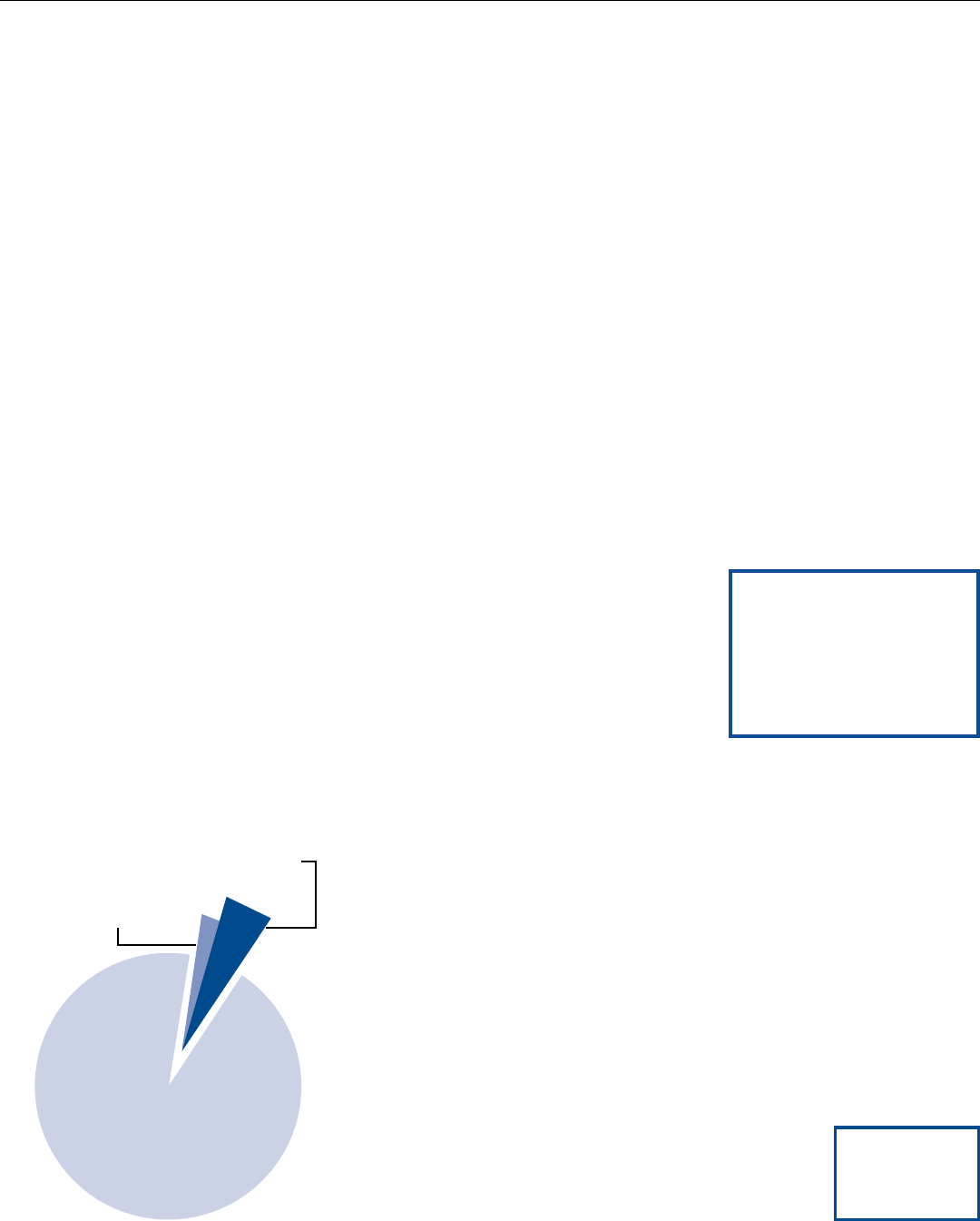
Table of
Contents
»
ASC Orientation
Once we have heard rom all admitted students, we know how many (i any) candidates we can admit rom
the wait list. We begin another round o committee meetings to decide which students to admit. There is
no specific notification date or wait list decisions. We do our very best to release the decisions as promptly
as possible, and we specifically aim to notiy all students by the end o June at the latest. The timing de-
pends almost entirely on the number o spaces available, which aects the length o our committee deliber-
ations.
June-August:
• “Send-o ” gatherings or new reshmen and returning students
The admitted student gatherings in April tend to be celebratory events, but the “send-o ” parties or new
and returning Yalies allows or unbridled happiness and shared pride. It’s not only a memorable occasion
or the students and their amilies, but it can be a shining moment or you and ellow volunteers as well.
Aer all, you have played a key role in making Yale a part o the students’ lives, and it should be savored.
Undergraduate Admissions:
Highly selective admissions:
You undoubtedly know that the size and talent o the applicant pool com-
pared to the number o places available in the first-year class severely limit
the number o students who will receive good news when admissions deci-
sions are released. Sometimes the news is as disappointing to interviewers
as it is to applicants. You are likely to find at some point that your avorite
interviewee has applied unsuccessully—in spite o your enthusiastic mas-
terpiece o an interview report. Your conversation with students might well
have a positive impact on them, even i they don’t land at Yale. And, as we
oen say, applicants’ positive interactions with alumni volunteers brings additional glow to the University’s
world-wide reputation.
You may be amiliar with statistics about our applicant pool. But
though they are typically the most quoted figures in guide books and
news articles, they don’t come close to describing the variety o talents
and backgrounds represented in the cohort o Yale hopeuls, and they
tend to suggest that gaining admission to places like Yale is really a
contest to see who can present the highest grades and scores, and the
most items and awards on their resumes.
It takes months o careul deliberation to assemble a class o
approx-imately 1,647 individuals who bring to the University the
range o backgrounds and experiences, depth o abilities and
accomplishments, and community-minded human
qualities that have enriched Yale year aer year.
We know that each year our decisions disappoint
Click here to
view
the full
Yale Class of
2027 Profile
52,000+
applicants
2,331 admitted
students
1,647 enrolled
first-years
»

Table of
Contents
»
ASC Orientation
a great many applicants and their admirers—o
en including ASC members. We regularly see comments
rom teachers, counselors, and interviewers along the lines o “This student is extraordinary” or “The best
I’ve ever seen” or “A must admit or Yale.” Alas, i we were to take all the applicants who received “best
ever” level praise, we would have to add at least ourteen more residential colleges to accommodate them
all. And were we to simply admit as many o the “most impressive” individual applicants we could fit into a
first-year class, we would we be sacrificing much o the variety o interests, backgrounds, points o view—
all manner o diversity—that creates broader and deeper learning experiences or all.
Thanks to your collaboration with us, we not only attract a superb applicant pool, but we enroll classes that
only a ew peer institutions might match. Your impressions help us see the promise o individual candi-
dates, and your ambassadorial eorts help us assemble the singular and wonderul community that is Yale.
While the interview report can provide helpul inormation about the applicant, it is but one part o the
application process. As previously mentioned, Yale receives ar more qualified applications than the number
o spots available in the first-year class. Not every student you interview will be admitted, including the
strongest, as everyone competes within the national pool. That said, be as open and honest as possible in
your reports. I a student is truly a standout, be sure to document how and why. I you had a less-than-a-
vorable impression o the student, be open and honest about that. We are always looking or the “how” and
“why” rom your reports.
Financial aid:
Yale is one o the most affordable colleges in the country or amilies with under $200,000 in annual
income—significantly less expensive on average than attending a top public university, even or in-state
students. Families who have annual incomes below $ 75,000 and typical household assets are not asked
to pay anything toward the cost o a Yale education. Yale meets 100% o every admitted student’s
financial need, with an aid package that does not require taking out loans.
To apply or financial aid, applicants should submit:
• The Free Applcation or Federal Student Aid (FAFSA) - fafsa.ed.gov
• The CSS Profile - student.collegeboard.org/css-financial-aid-profile
• A signed copy o the amily’s most recent tax returns
• Additional financial documentation, depending on amily’s particular financial circumstances
Students also make a modest financial contribution rom summer and term-time job earnings. Yale’s Net
Price Calculator and Quick Cost Estimator, available at admissions.yale.edu/financial-aid, allow amilies
to receive an estimate o their cost o attendance. More inormation, including Yale’s criteria or granting
Common Application ee waivers, can be ound on the financial aid page of the admissions website.
